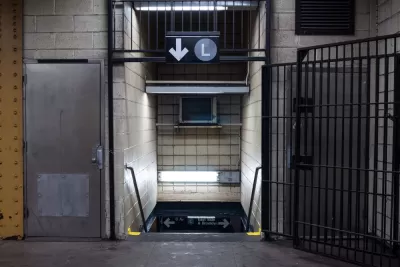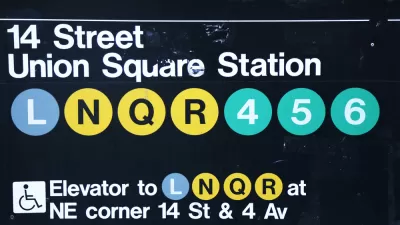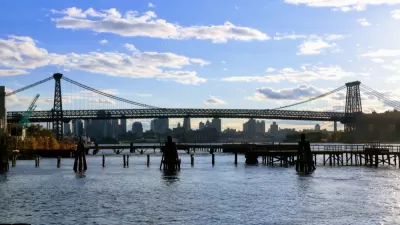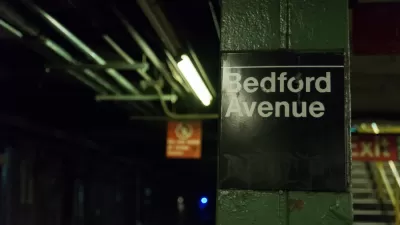Surprise, shocking news from New York City, as Governor Andrew Cuomo steps in at the 11th hour to change course on the highly anticipated (and dreaded) L Train closure scheduled to begin later this year.

"Gov. Andrew M. Cuomo announced on Thursday that the L train subway tunnel would not fully shut down in April as planned in what would have been one of the biggest transit disruptions in New York City’s recent history," report Emma G. Fitzimmons and Shane Goldmacher.
The L Train closure was scheduled to begin on April 27, and preparations to make up for the lost capacity were already well underway. "The Metropolitan Transportation Authority, which operates the subway, had said the closing was necessary to repair damage from Hurricane Sandy in 2012, when the tunnel between Manhattan and Brooklyn was inundated by floodwaters," according to Fitzsimmons and Goldmacher.
Enter Governor Andrew Cuomo, who hatched a new plan with the help of a panel of experts. Under the new plan, "workers would use a different design to repair the tunnel and some work could be done on nights and weekends," according to the article. "The new plan could be completed in 15 to 20 months and means that the L train’s rush hour schedule will remain the same. Trains would still run at night and one weekends but wait times would be longer."
The methods recommended in the new plan have been deployed in Europe, but never before in the United States.
More coverage of the news is available from the Wall Street Journal (paywall), New York Post, Curbed New York, Business Insider, and Bloomberg.
FULL STORY: Full Shutdown of L Train to Be Halted by Cuomo

Alabama: Trump Terminates Settlements for Black Communities Harmed By Raw Sewage
Trump deemed the landmark civil rights agreement “illegal DEI and environmental justice policy.”

Study: Maui’s Plan to Convert Vacation Rentals to Long-Term Housing Could Cause Nearly $1 Billion Economic Loss
The plan would reduce visitor accommodation by 25% resulting in 1,900 jobs lost.

Why Should We Subsidize Public Transportation?
Many public transit agencies face financial stress due to rising costs, declining fare revenue, and declining subsidies. Transit advocates must provide a strong business case for increasing public transit funding.

Wind Energy on the Rise Despite Federal Policy Reversal
The Trump administration is revoking federal support for renewable energy, but demand for new projects continues unabated.

Passengers Flock to Caltrain After Electrification
The new electric trains are running faster and more reliably, leading to strong ridership growth on the Bay Area rail system.

Texas Churches Rally Behind ‘Yes in God’s Back Yard’ Legislation
Religious leaders want the state to reduce zoning regulations to streamline leasing church-owned land to housing developers.
Urban Design for Planners 1: Software Tools
This six-course series explores essential urban design concepts using open source software and equips planners with the tools they need to participate fully in the urban design process.
Planning for Universal Design
Learn the tools for implementing Universal Design in planning regulations.
Caltrans
Smith Gee Studio
Institute for Housing and Urban Development Studies (IHS)
City of Grandview
Harvard GSD Executive Education
Toledo-Lucas County Plan Commissions
Salt Lake City
NYU Wagner Graduate School of Public Service





























